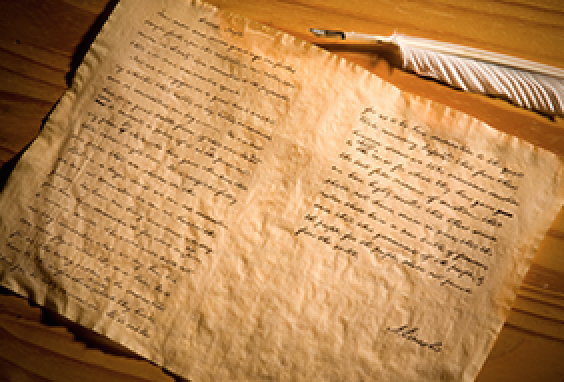 This month thousands of high school and college commencement speeches will be delivered throughout the land. Some of them will be way too long. I know this because I have sat through a couple dozen commencement speeches through the years, and ghostwritten a couple myself.
This month thousands of high school and college commencement speeches will be delivered throughout the land. Some of them will be way too long. I know this because I have sat through a couple dozen commencement speeches through the years, and ghostwritten a couple myself.
It was Mark Twain who said, “I didn’t have time to write a short letter, so I wrote a long one instead.” The same principle can be applied to speeches and blogs. Writing a long speech or blog that no one will ever remember is a relatively easy task. Writing a short speech or blog that no one wants to forget is more difficult and time-consuming, but it’s definitely worth the effort.
Here’s a good example: On Nov. 19, 1863 famed orator Edward Everett delivered a two-hour speech at Gettysburg National Cemetery, but his long, rambling message put the audience to sleep. By comparison, Everett was followed on the podium by Abraham Lincoln who delivered a brilliant two-minute speech that has stood the test of time and inspired generations of Americans.
Lincoln’s Gettysburg Address was only 273 words (about the length of a short blog), but it took him two weeks to write, and he was still doing final edits on the train ride to the cemetery that day. While it only took a couple minutes for Lincoln to deliver the final 273 words, his message helped heal the spirit of an entire nation divided by Civil War. Today, those same words are still immortalized in granite at the Lincoln Memorial.
Here’s another example: For 17 days (from June 11-28, 1776), Thomas Jefferson struggled to write the first draft of the Declaration of Independence. It was not an easy piece of writing. At one point, Jefferson requested that his wife come and talk him through his writer’s block. He was determined to write something short and clear because (in his own words), he wanted to “place before mankind the common sense of the matter in terms so plain and simple as to command their assent.”
After Congress debated and approved a final draft of Jefferson’s Declaration of Independence, the plan was to roll it out to the nation on July 2, 1776. But Jefferson still wasn’t satisfied. He took another couple days to consider final tweeks and edits, which is why our official day of Independence slid forever from the 2nd of July to the 4th of July.
You have to hand it to Jefferson for holding the line on length. The final Declaration of Independence is only 1,337 words long (about the same length as a typical Huffington Post blog). It would have been much easier and faster for him to write a longer version, of course. But our sleek, compact Declaration of Independence has served us well, inspiring the longest, most audacious and successful experiment in human freedom the world has ever seen.
This got me thinking of a simple formula to improve the quality of communication for today’s leaders, speakers and bloggers:
“From now on, all blogs and speeches must be
no shorter than the Gettysburg Address
and no longer than the Declaration of Independence.”
If we do that, we’ll find ourselves in great company.
Remember:
- Some of the most powerful messages are also the shortest.
- It’s not how much you say, it’s how much your audience remembers that’s important.
- Most speeches or blogs, including this one, would be better if
carefully compressed and cut in half.
Thanks Dan,,,, always look forward to your thoughts,,,Tx